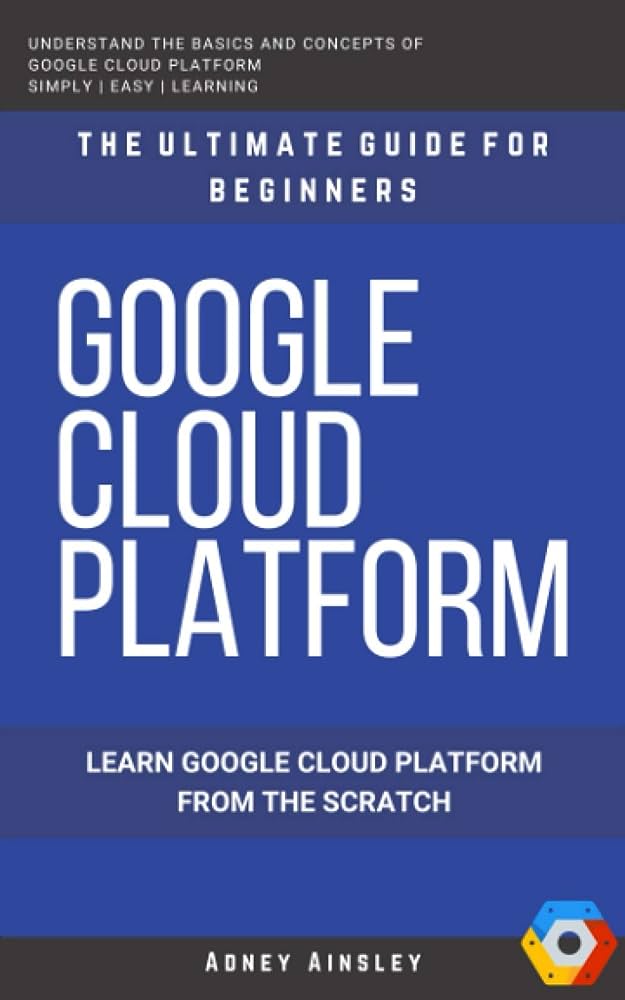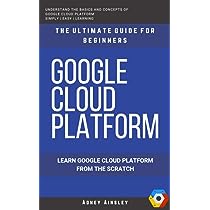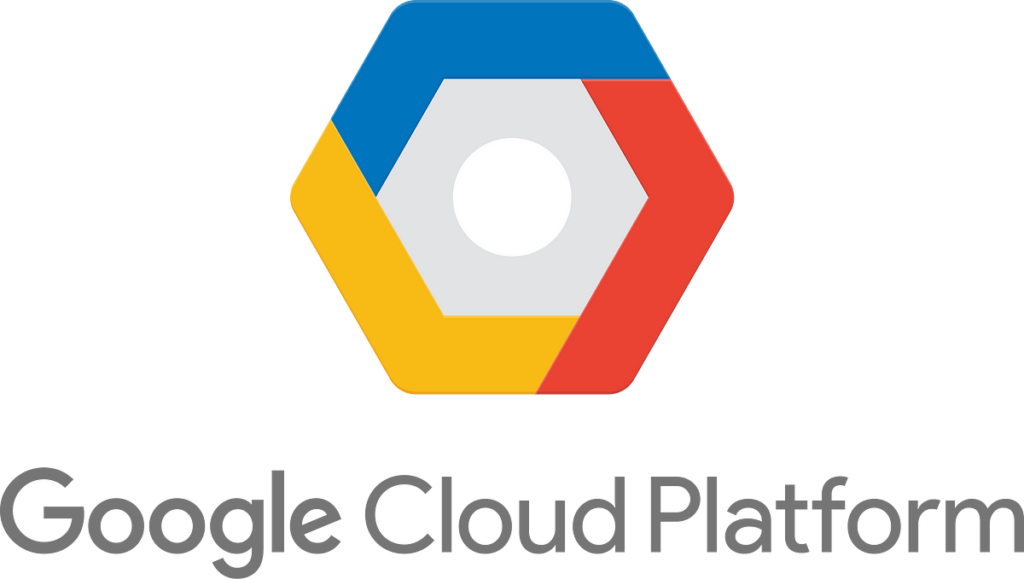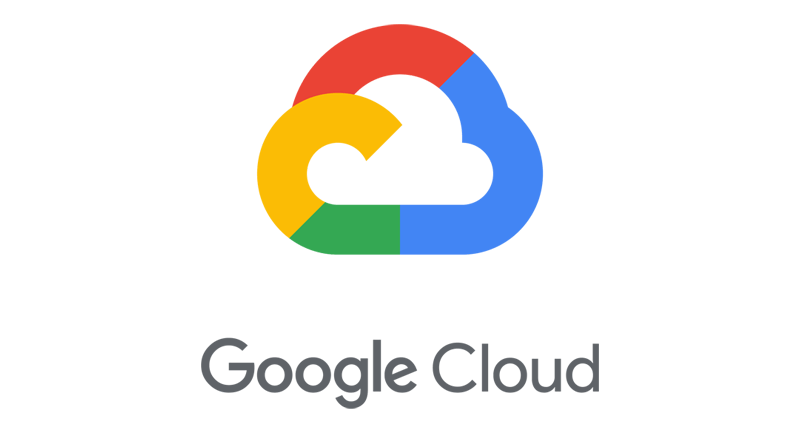If you’re new to the world of cloud computing and looking for a straightforward guide to get started with the Google Cloud Platform (GCP), you’ve come to the right place. This article aims to provide you with a beginner-friendly introduction to GCP, giving you a solid understanding of its key features and benefits. Whether you’re a small business owner, a developer, or simply curious about the capabilities of cloud technology, join us on this journey as we explore the exciting possibilities that GCP has to offer.

What is Google Cloud Platform?
Overview
Google Cloud Platform (GCP) is a comprehensive suite of cloud computing services provided by Google. It offers a wide range of infrastructure and platform services to help businesses build, deploy, and scale their applications. With GCP, you can access a global network of data centers, powerful computing resources, and a variety of tools and services to meet your specific needs.
Key Features
Some key features of Google Cloud Platform include:
- Scalability: GCP allows you to easily scale your applications as your needs grow, ensuring that you have the resources you need when you need them.
- Reliability: With Google’s robust infrastructure, you can rely on GCP to deliver high availability and uptime for your applications.
- Security: Google takes security very seriously, implementing multiple layers of protection to keep your data safe and secure.
- Flexibility: GCP supports a variety of programming languages and frameworks, giving you the freedom to choose the tools that work best for you.
- Big Data and Machine Learning: With powerful analytics and machine learning capabilities, GCP allows you to unlock the value of your data and gain valuable insights.
Getting Started with Google Cloud Platform
Creating a GCP account
To get started with Google Cloud Platform, you will need to create a GCP account. Simply go to the GCP website, click on the “Get Started for Free” button, and follow the instructions to create your account. You will need to provide some basic information and agree to the terms and conditions.
Setting up billing
Once you have created your GCP account, the next step is to set up billing. This is necessary to access some of the GCP services and resources. You can set up a billing account by providing your billing information and selecting your preferred payment method. Google provides various billing options to suit different needs and budgets.
Accessing the GCP Console
After setting up your GCP account and billing, you can access the GCP Console. The GCP Console is a web-based interface that allows you to manage your GCP resources, configure settings, and deploy applications. It provides a user-friendly and intuitive interface that makes it easy to navigate and access the different services and tools offered by GCP.

Google Cloud Services
Google Cloud Platform offers a wide range of services to meet the needs of different types of applications. Here are some of the key services provided by GCP:
Compute Engine
Compute Engine is a virtual machine (VM) service that allows you to create and manage virtual machines in the cloud. It provides scalable and flexible compute resources, allowing you to run your applications on virtual machines with a variety of configurations. Compute Engine offers high performance and reliability, making it suitable for a wide range of workloads.
App Engine
App Engine is a platform-as-a-service (PaaS) offering that allows you to build and deploy applications without having to worry about the underlying infrastructure. It supports multiple programming languages and provides automatic scaling as your application’s demand changes. App Engine lets you focus on writing code and building your application, while Google manages the infrastructure and ensures high availability.
Kubernetes Engine
Kubernetes Engine is a managed Kubernetes service that allows you to run containerized applications in the cloud. It provides a flexible and scalable platform for deploying, managing, and scaling containerized workloads. With Kubernetes Engine, you can easily orchestrate and manage your containers, ensuring that your applications run efficiently and reliably.
Cloud Functions
Cloud Functions is a serverless computing service that allows you to run your code in response to events without the need to provision or manage any infrastructure. It enables you to write small, single-purpose functions that can be triggered by various events such as changes to data in a storage bucket or HTTP requests. Cloud Functions provides a scalable and cost-effective way to run event-driven workloads.
Cloud Run
Cloud Run is a fully managed serverless execution environment that allows you to run containers on a fully managed platform. It is built on the Knative open-source project and runs stateless HTTP-driven containers. Cloud Run automatically scales your containers based on incoming requests and provides a pay-per-use pricing model. It offers the flexibility and scalability of serverless computing combined with the power of containers.
Storage and Databases
Google Cloud Platform offers various storage and database solutions to meet different data storage and management needs. Here are some of the key services provided by GCP:
Cloud Storage
Cloud Storage is a scalable and durable object storage service that allows you to store and retrieve your data from anywhere in the world. It offers high-performance storage with multiple storage classes to optimize cost and performance based on your requirements. With Cloud Storage, you can securely store and manage your data, and easily integrate it with other GCP services.
Cloud SQL
Cloud SQL is a fully managed relational database service that makes it easy to set up, manage, and administer relational databases on GCP. It supports popular database engines such as MySQL and PostgreSQL and provides automatic backups, automated patch management, and high availability. Cloud SQL takes care of database management tasks, allowing you to focus on developing your applications.
Cloud Spanner
Cloud Spanner is a globally distributed and horizontally scalable relational database service. It provides strong consistency and high availability, allowing you to build mission-critical applications that require global scalability. With Cloud Spanner, you can scale your databases seamlessly, without the need to re-architect your application or sacrifice performance.
Cloud Bigtable
Cloud Bigtable is a fast, fully managed, and massively scalable NoSQL database service. It is designed to handle large amounts of data with low latency and high throughput. Cloud Bigtable powers many of Google’s core services and is suitable for use cases such as time-series data, financial data, and IoT analytics. With Cloud Bigtable, you can store and analyze vast amounts of data in a performant and cost-effective manner.

Networking
Google Cloud Platform provides a robust networking infrastructure that allows you to securely connect, isolate, and scale your applications. Here are some of the key networking services provided by GCP:
Virtual Private Cloud (VPC)
Virtual Private Cloud (VPC) provides a secure and isolated virtual network for your GCP resources. It allows you to define and control IP addresses, subnets, and firewall rules to isolate and secure your applications and data. VPC provides flexible networking options and allows you to connect your GCP resources to your on-premises network securely.
Load Balancing
Load Balancing automatically distributes incoming network traffic across multiple instances to ensure optimal resource utilization and high availability. GCP provides different types of load balancing options, including HTTP(S) load balancing, SSL proxy load balancing, and TCP/UDP load balancing. Load balancing helps to distribute the traffic evenly and provides a scalable and reliable infrastructure for your applications.
Cloud DNS
Cloud DNS is a scalable and reliable domain name system (DNS) service provided by GCP. It allows you to manage and resolve your domain names to IP addresses and vice versa. With Cloud DNS, you can achieve low-latency and high-performance DNS resolution for your applications, ensuring that they are easily accessible by users.
Data Analytics and AI
Google Cloud Platform offers a wide range of data analytics and machine learning services to help you extract valuable insights from your data. Here are some of the key services provided by GCP:
BigQuery
BigQuery is a fully managed, serverless, and highly scalable data warehouse service. It allows you to analyze massive datasets using SQL queries and provides high-performance querying and automatic scaling. With BigQuery, you can gain valuable insights from your data and make data-driven decisions without the need for complex infrastructure management.
Cloud Dataflow
Cloud Dataflow is a fully managed service for executing batch and streaming data processing pipelines. It provides a unified programming model for both batch and streaming data and supports popular data processing frameworks such as Apache Beam. With Cloud Dataflow, you can build scalable and reliable data processing pipelines that help you transform and analyze your data in real-time.
Cloud Pub/Sub
Cloud Pub/Sub is a messaging service that allows you to send and receive messages between independent applications. It provides reliable and scalable messaging for distributing event-driven data across different systems and services. With Cloud Pub/Sub, you can build decoupled, scalable, and resilient applications that can react to events in real-time.
Cloud AI Platform
Cloud AI Platform allows you to build, deploy, and scale machine learning models on GCP. It provides a suite of tools and services to help you throughout the machine learning lifecycle, from data preparation to model deployment. With Cloud AI Platform, you can leverage Google’s expertise in machine learning and take advantage of pre-trained models and APIs to build intelligent applications.

Security and Identity Management
Google Cloud Platform provides robust security features and identity management tools to help you protect your applications and data. Here are some of the key security services provided by GCP:
Identity and Access Management (IAM)
Identity and Access Management (IAM) allows you to manage access control for your GCP resources. It provides fine-grained access control, allowing you to grant or revoke permissions to users or groups at the project or resource level. IAM helps you enforce the principle of least privilege and ensures that only authorized users have access to your resources.
Security Key Enforcement
Security Key Enforcement is a security feature provided by GCP that allows you to use physical security keys for two-factor authentication (2FA). It adds an extra layer of protection to your GCP account by requiring the physical presence of a registered security key during authentication. Security Key Enforcement helps to prevent unauthorized access to your GCP resources.
Cloud Identity-Aware Proxy
Cloud Identity-Aware Proxy (IAP) is a service that allows you to control access to your web applications running on GCP. It provides identity-based access control and allows you to grant or deny access to your applications based on user identity, device security status, and other contextual information. Cloud IAP helps you secure your applications and protect against unauthorized access.
Deployment and Management Tools
Google Cloud Platform provides a set of tools and services to help you deploy and manage your applications effectively. Here are some of the key deployment and management tools provided by GCP:
Cloud Deployment Manager
Cloud Deployment Manager allows you to define and deploy your infrastructure as code using template files. It provides a declarative approach to infrastructure management, allowing you to easily version, manage, and reproduce your infrastructure configurations. With Cloud Deployment Manager, you can automate and streamline the process of deploying and managing your GCP resources.
Cloud Console
Cloud Console is a web-based interface that allows you to manage your GCP resources and access various GCP services. It provides an intuitive and user-friendly interface for performing tasks such as creating and managing resources, monitoring your applications, and configuring settings. Cloud Console makes it easy to navigate and interact with your GCP resources.
Cloud Monitoring
Cloud Monitoring allows you to monitor the performance and health of your applications and infrastructure on GCP. It provides a centralized platform for collecting, analyzing, and visualizing metrics, logs, and events. Cloud Monitoring helps you gain insights into the performance of your applications, troubleshoot issues, and ensure the reliability of your infrastructure.
Cloud Logging
Cloud Logging allows you to store, search, and analyze logs from your applications and infrastructure on GCP. It provides a central repository for logs, allowing you to easily view and analyze logs in real-time. Cloud Logging helps you gain visibility into the operational behavior of your applications and infrastructure, enabling you to troubleshoot issues and detect anomalies.

Pricing and Billing
Google Cloud Platform offers flexible pricing options and a transparent billing model. Here are some key aspects of pricing and billing on GCP:
Pricing Structure
GCP offers a pay-as-you-go pricing model, where you only pay for the resources and services you use. The pricing for each service is based on factors such as the amount of compute resources consumed, storage capacity used, and network egress traffic. Google provides detailed pricing information for each service on the GCP website, allowing you to calculate and estimate your costs.
Billing Options
GCP offers various billing options to suit different needs and budgets. You can choose to pay monthly or set up a budget and make automatic payments. Google also offers committed use contracts for certain services, where you can receive discounted prices by committing to use a specific amount of resources for a term of one or three years.
Budgeting and Alerts
GCP provides tools to help you monitor and manage your costs. You can set up budget alerts to receive notifications when your spending reaches a certain threshold. This allows you to stay within your budget and avoid unexpected charges. GCP also provides a billing dashboard and reports that allow you to track and analyze your usage and spending.
Learning Resources
Google Cloud Platform provides a wealth of learning resources to help you get started and build your skills. Here are some of the key learning resources provided by GCP:
Documentation
GCP provides comprehensive documentation that covers the features, concepts, and best practices of each service. The documentation includes tutorials, guides, API references, and sample code to help you understand and use GCP effectively. It is a valuable resource for learning and building expertise in Google Cloud Platform.
Tutorials and Training
GCP offers a variety of tutorials and training resources to help you learn and master GCP services. You can find hands-on labs, online courses, and interactive training modules that cover different topics and skill levels. Google also offers certification programs that validate your knowledge and expertise in using GCP.
Community Support
Google Cloud Platform has a vibrant community of users and developers who are willing to share their knowledge and help each other. You can join forums, participate in discussions, and ask questions to get help and guidance from the community. GCP also provides support options, including documentation, support tickets, and phone support for certain billing and account-related issues.
Certifications
Google Cloud Platform offers professional certifications that validate your expertise in using GCP. The certifications cover different areas such as cloud architecture, data engineering, machine learning, and security. By earning a GCP certification, you can demonstrate your proficiency in using GCP services and enhance your professional credibility.
In conclusion, Google Cloud Platform offers a comprehensive suite of cloud computing services that enable you to build, deploy, and scale your applications with ease. With its wide range of services, tools, and resources, GCP provides the flexibility, scalability, and reliability that businesses need in today’s rapidly changing technology landscape. Whether you are a beginner or an experienced user, Google Cloud Platform offers the tools and support you need to succeed in the cloud.
